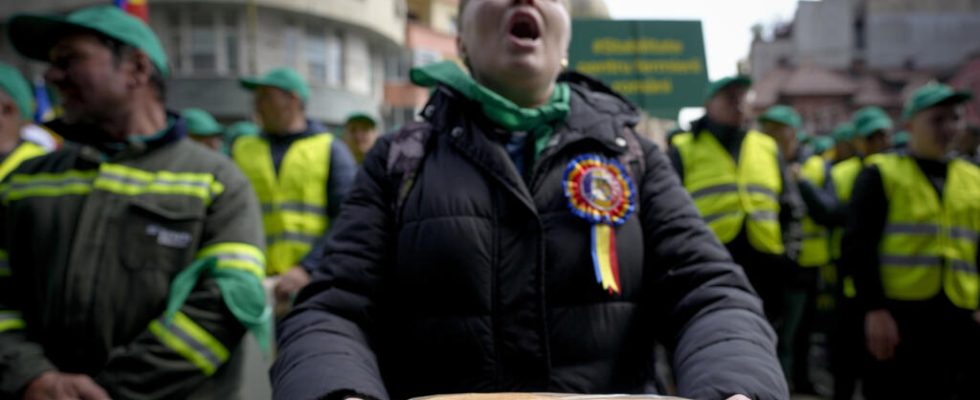The decision of Poland, then Hungary and now Slovakia, to suspend imports of Ukrainian cereals, had been judged “ unacceptable by the European Commission in a first reaction, Sunday, April 16. Since then, the Commission has qualified its assessment, because in reality it is torn between the need to support Kyiv and the need to protect EU farmers. The impact of falling grain prices is creating bottlenecks in Central and Eastern Europe which must also be taken into account.
With our correspondent in Brussels, Pierre Benazet
It is not a question of punishing, but of finding solutions in favor of Ukrainians and Europeans, the Commission now asserts. She underlined that the neighboring countries of Ukraine had done all they could to help her and that difficulties should not be created for their populations.
There is pressure on the prices of the countries of Eastern Europe, which are seeing these Ukrainian cereals arrive at very competitive prices, and therefore, on the other hand, their farmers are complaining of having outlets at lower prices than what they would have expected.
François Luguenot, agricultural raw materials market expert
The intention to help Ukraine remains the priority, but the Union could restore certain customs duties, according to Miriam Garcia Ferrer, spokesperson for the European Commissioner for Trade.
” Commercial policy is our exclusive competence, she recalls. It is at European level that such decisions can be taken and that is why we say that unilateral actions are not possible under European trade rules. We have a Deep Free Trade Agreement with Ukraine and we are offering to extend it, as it is very important to continue supporting Ukraine in these difficult times. »
Brussels sees the drop in grain prices as a positive effect of support for Ukraine. But these tensions with European producers foreshadow the difficulties that the agricultural chapter will pose on the still distant day when negotiations for Ukraine’s accession to the EU will begin.
►Also read Poland and Hungary put a stop to agricultural imports from Ukraine, Brussels reacts
At the time we are in, that is to say in mid-April, the impact is reduced. The bulk of the export has already taken place. We are spinning the end of the campaign.
François Luguenot, agricultural raw materials market expert
